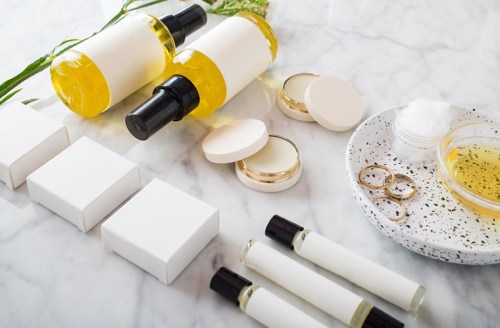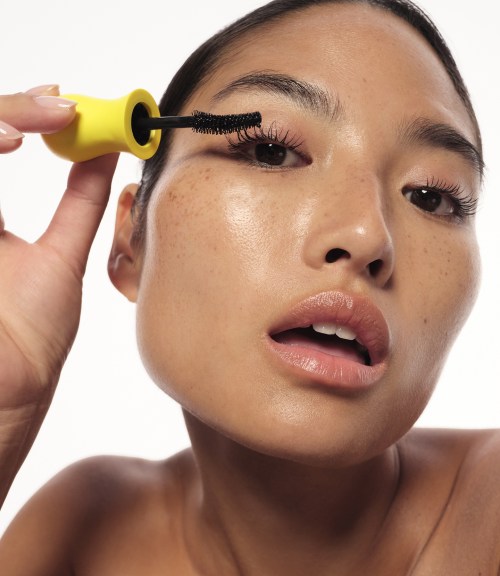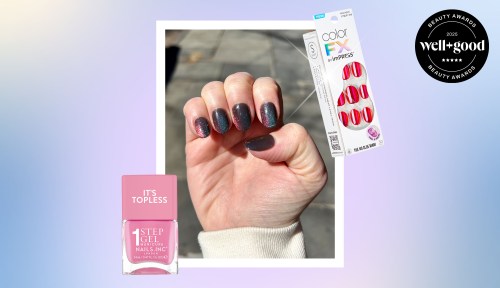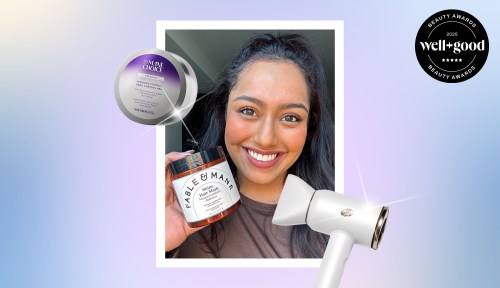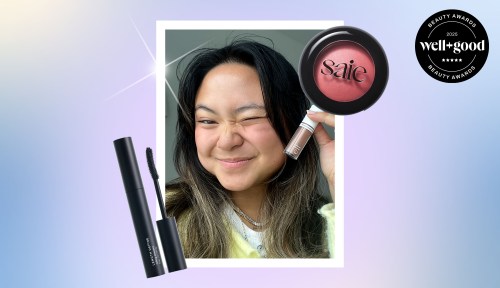As the founder of the San Francisco clean beauty boutique Ayla Beauty, Dara Kennedy keeps to a strict regimen of natural products (you gotta practice what you preach, right?). So she was shocked when she started getting welts on her face—not exactly what you’d expect from using botanicals derived from the earth. But it was clear some ingredient wasn’t mixing well with her complexion.
The culprit behind Kennedy’s—and many others’—reaction, it turns out, stems from a certain, innocent-seeming natural extract: vitamin E, also known as tocopherol. So she actually had an allergic reaction to essential oils… which actually is pretty common.
“It’s interesting because I’ve been using natural products for so long,” says Kennedy. “People think essential oils are so nice and natural, but you can have too much of a good thing.” In fact, tocopherol (as one example) ranks highly on the North American 80 Comprehensive Series, a list of the most common allergies—also on the list are tea tree oil and ylang ylang. But does this mean all natural extracts could potentially cause a rash?
“People think essential oils are so nice and natural, but you can have too much of a good thing.”
“It’s not like every essential oil is bad,” says Kennedy (phew). “It’s just that people need to respect that they’re potent. They just happen to be in everything, and the more you use them, the more likely you’ll have some sort of reaction.”
When I asked a dermatologist about it, he pointed out that vitamin E is normally well-tolerated—but he sees it cause another skin woe. “Vitamin E generally has a low incidence of allergic reactions,” says Joshua Zeichner, MD, a New York-based dermatologist. “Being an oil soluble vitamin, the biggest issue I have seen in patients using vitamin E is acne breakouts.” That said, he says the most common skin reaction to essential oils is an irritation—”especially if the oils aren’t diluted out.” They also have the potential to have phototoxic reactions. “That means a chemical burn if the oil is still on your skin and you go out into the sun,” says Dr. Zeichner.
So if you’re one of the 15 percent of the population has some sort of sensitivity to essential oils, there’s no actual need to be alarmed. “It’s not like everyone’s proactively testing themselves for these things,” says Kennedy. “If you have sensitive skin and aren’t really sure, getting your skin tested could help keep problems from happening.” You could also go on a beauty detox to weed out allergens as well as surplus steps in your routine.
Either way, this all goes to say that plants are powerful things—so shopping for them in your skin-care products takes some due diligence. Keep scrolling for expert-approved tips for safely choosing essential oils.
1. Buy products from reliable brands
First things first: Kennedy says it’s key to buy from brands you know. “You have to trust the company as far as sourcing goes, especially with oil-based products,” she says. “It’s very easy for a new brand to put an oil out into the market—there’s minimal testing that has to be done. But the extraction process is very raw-material-intensive, and it takes time for brands to build relationships with the right growers and distillers.”
Because of these factors, Kennedy advises you reach for brands like Uma, which has a vertically integrated, farm-to-table process, and Vintner’s Daughter, which comes from a family with a long tradition in agriculture. “Some essential oils of dubious quality can be adulterated to tweak their fragrance,” she explains. “So if you see a pretty inexpensive product that clearly uses essential oils for scent, it might not be a fantastic choice—especially if you have sensitive skin.”
2. Beware of inflammation
Initial burning is not a good sign. “Generally speaking, if you are using an essential oil or any other product, if you develop redness, burning, or stinging it may signify a skin reaction and you should wash your face right away to remove the product,” says Dr. Zeichner. But let’s say you’ve been using essential oil-spiked beauty products for a while now and haven’t noticed anything as severe as welts. Are you in the clear? Sudden breakouts or slight changes in your complexion could also be a sign of trouble.
“Any time that your skin has a reaction, it’s an indicator of inflammation,” says Kennedy. “Over time, it can cause premature aging and structural damage to your skin.” The best thing you can do is pay close attention to how your skin looks and feels when you try something new.
3. Be careful with citrus
Some essential oils cause more bad reactions than others. “Citrus-based oils tend to be the ones that people have the most trouble with,” explains Kennedy. Dr. Zeichner points out that the most common essential oil culprits that can cause phototoxic reactions include bergamot, cumin, ginger, lemon, lime, angelica root, and lovage.
“These are more photosensitizing,” says Kennedy. “So [you see] an added inflammatory aspect from the sun.” Noted—sometimes things in their purest form come with protocols. You can still add essential oils to your diffuser or dab them on your pulse points for an instant de-stress, you just have to know what you’re using.
Originally posted September 11, 2017, updated with new reporting on August 13, 2019
To get the most out of your extracts, here are 3 genius ways to clean your home using essential oils—plus 6 that can calm anxiety.
Sign Up for Our Daily Newsletter
Get all the latest in wellness, trends, food, fitness, beauty, and more delivered right to your inbox.
Got it, you've been added to our email list.
